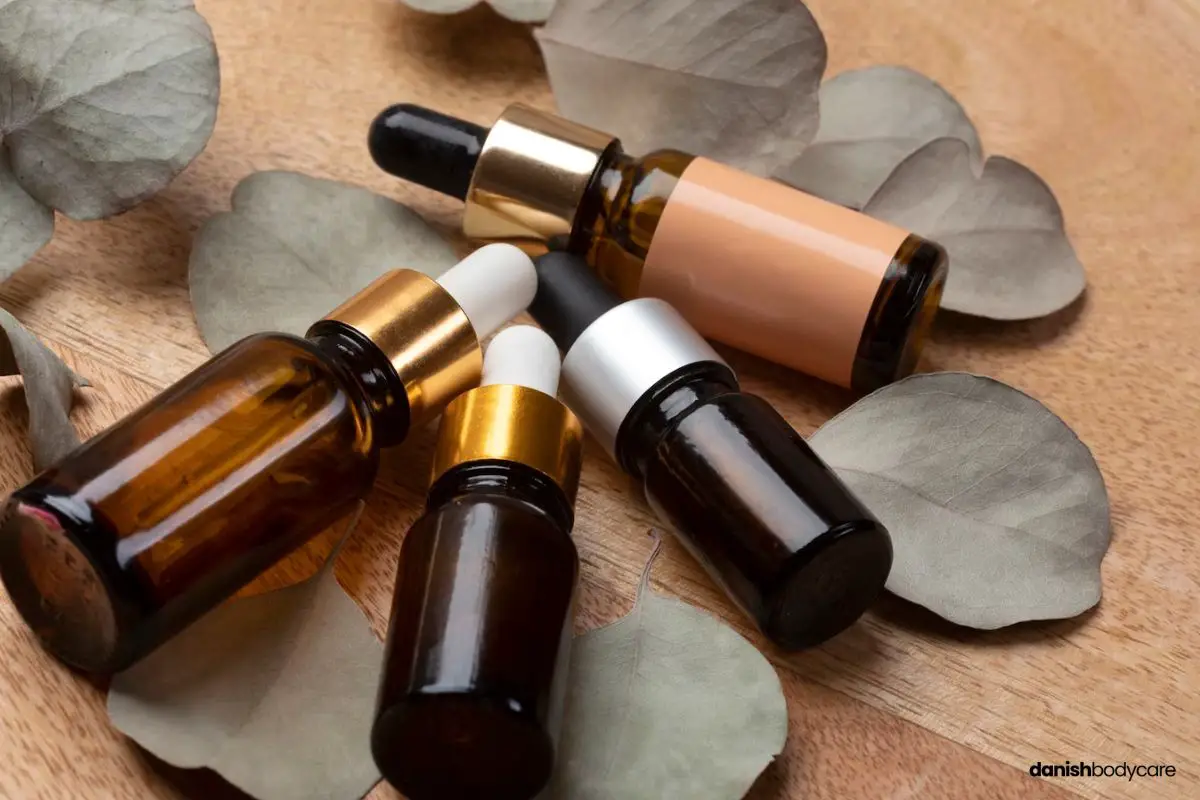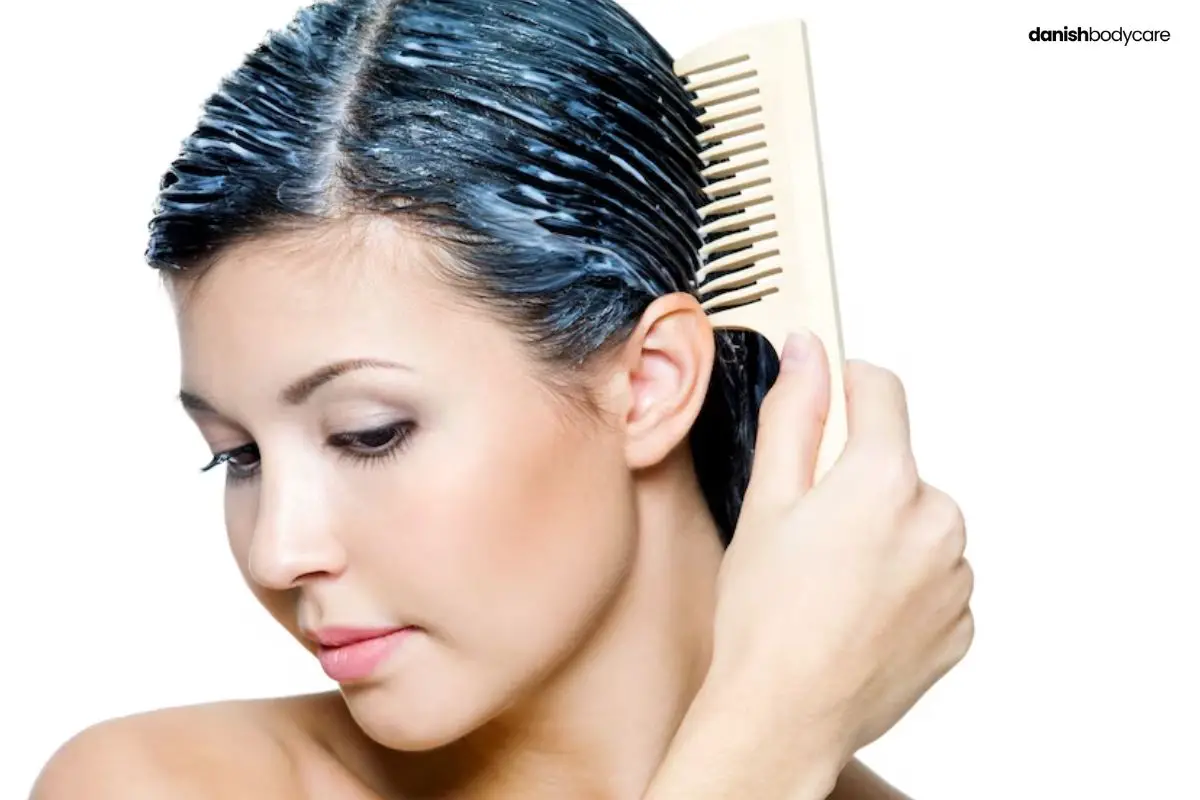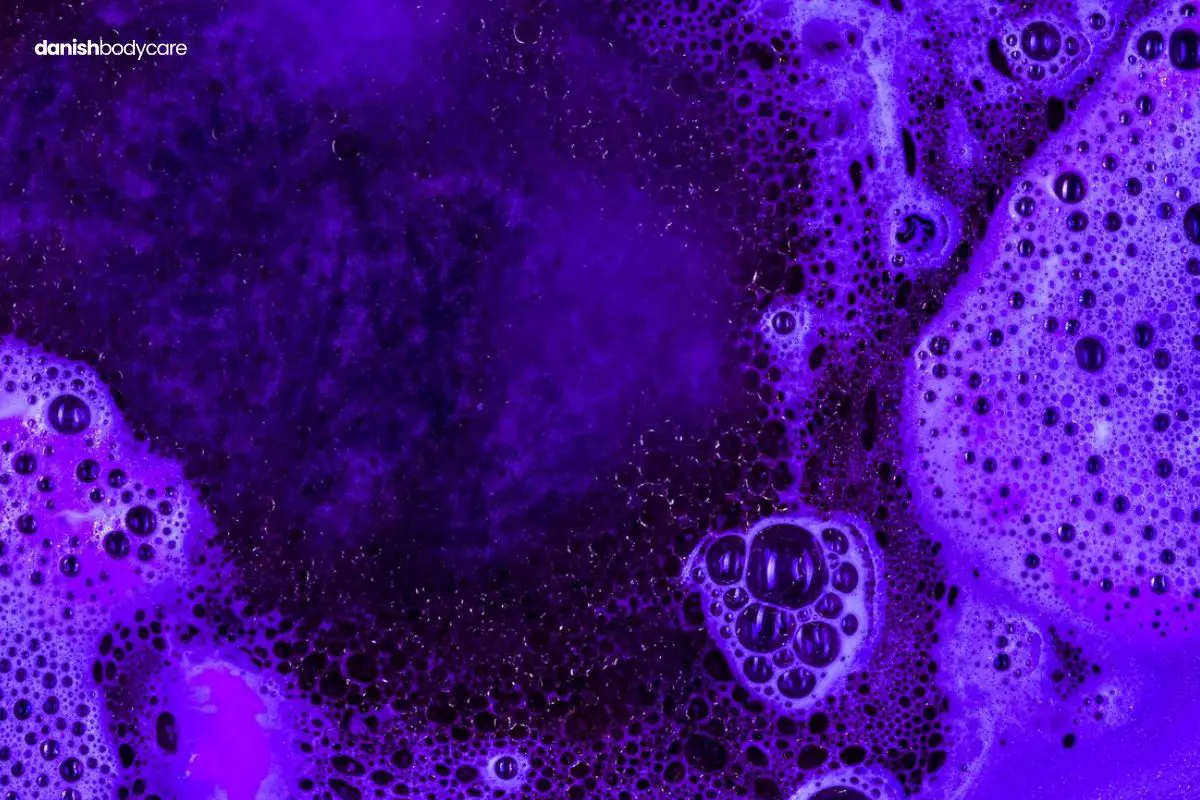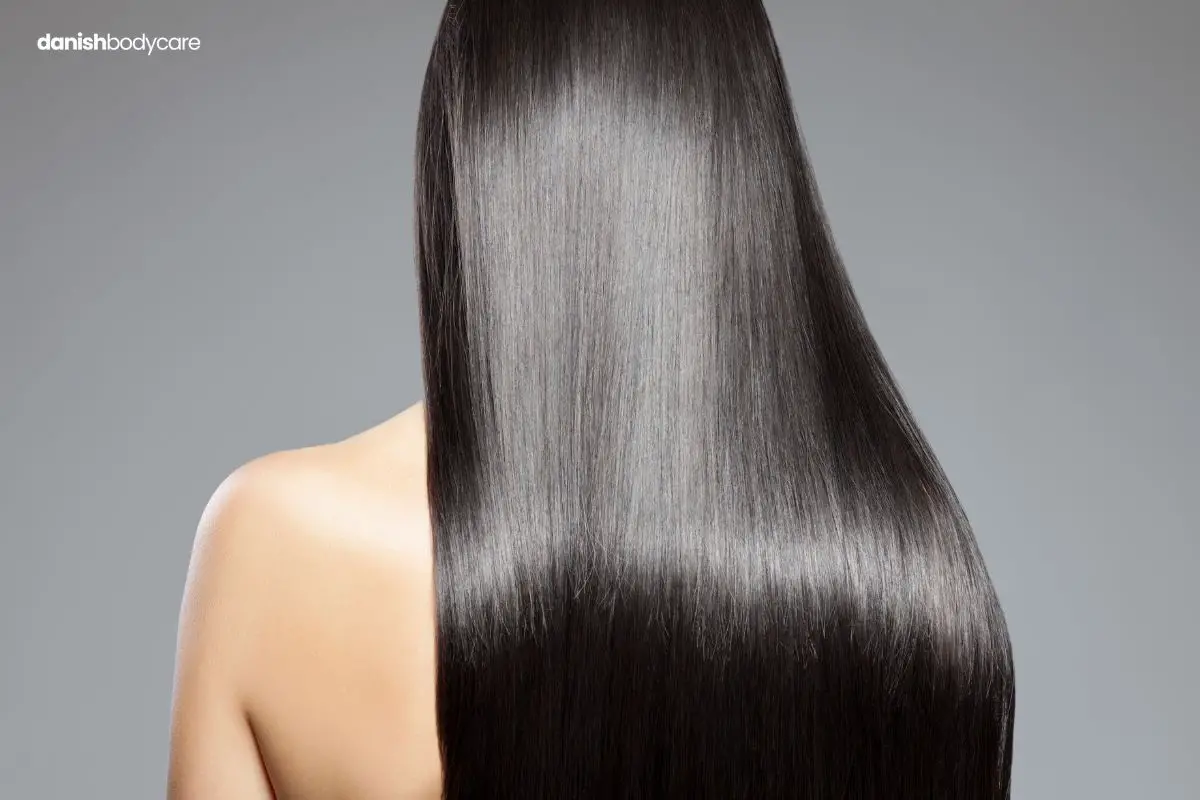If your hair absorbs moisture fast but loses it just as fast, you likely have high porosity hair.
This trait can leave hair dry, frizzy, and prone to damage.
But certain oils for high-porosity hair can change the game. They help seal moisture in and protect your hair.
In this article, we explore the best oils for high-porosity hair. You will learn how they improve your hair’s health and maintain its luscious appearance.
What Is High Porosity Hair?
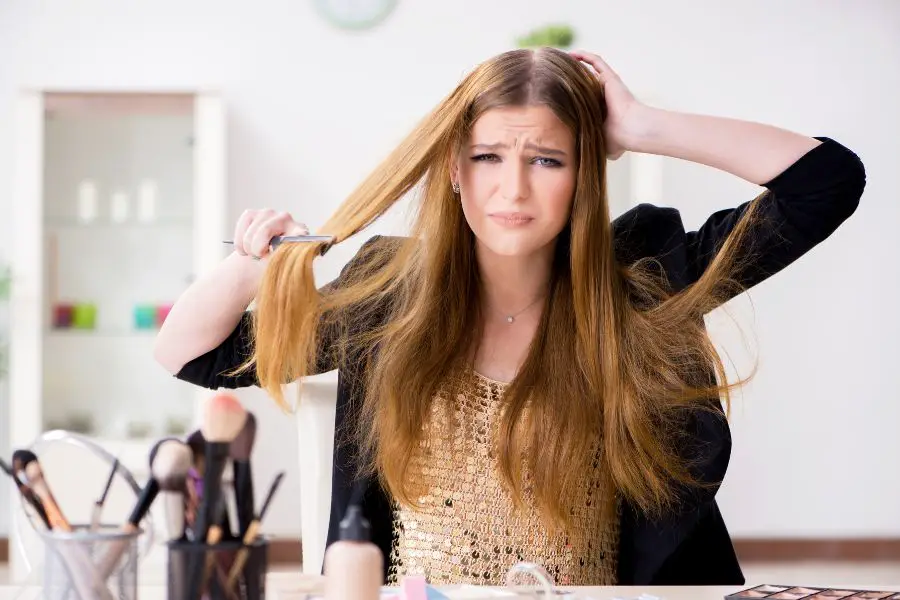
High porosity hair is a type of hair that absorbs water, oils, and other products with ease.
This happens because the hair cuticles are more open and raised in high-porosity hair. Hair cuticles are tiny protective layers surrounding each hair strand. This is why your hair can take in and release moisture pretty fast.
Compared to other porosity hair types, high-porosity hair needs oils that keep the moisture in. This table will help you better understand why.
| Type | Cuticle Structure | Moisture Penetration | Moisture Retention |
|---|---|---|---|
| High porosity hair | Cuticles are lifted or separated | Easily absorbs moisture | Has difficulty retaining moisture |
| Low porosity hair | Cuticles are compact or tightly bound | Difficult for moisture to penetrate | Retains moisture well once it penetrates |
| Medium porosity hair | Cuticles are slightly raised | Moderate ease of moisture penetration | Balances absorption and retention of moisture well |
Some high-porosity hair characteristics include:
- Rapid moisture absorption
- Struggling with moisture retention
- Quick to dry
- Prone to frizz
- Lack of volume
- Lack of shine
- Tendency to tangle
- Feeling rough or coarse
- Dull appearance
- Easily colored
- Prone to breakage and split ends
- Difficulty holding styles
- Rapid product build-up
Does High-Porosity Hair Need More Oil?
Yes, high-porosity hair may benefit from more frequent use of oil compared to low or medium-porosity hair. The amount of oil needed varies from person to person, depending on the condition of the hair and its specific needs.
Here are the benefits of using high-porosity hair oils:
- Moisture retention
- Reduced frizz and increased smoothness
- Protection from environmental stressors
- Nutritional benefits for the hair and scalp
- Improved hair strength
- Hair growth stimulation
- Scalp soothing
- Extra shine
- Breakage and split ends prevention
- Heat protection
- Reduced hair porosity
Moisture Retention
Applying oils to high-porosity hair helps seal in moisture, keeping your hair hydrated.
This is essential as high-porosity hair absorbs water but struggles to keep it in.
Reduced Frizz and Increased Smoothness
Oils smooth the hair cuticles. This reduces frizz, making your hair feel softer and more manageable.
Protection from Environmental Stressors
Oils offer a protective layer for your hair. This shields it from environmental damage such as:
- Pollution
- Harsh weather
- Sun exposure
Nutritional Benefits for the Hair and Scalp
Natural oils are rich in essential fatty acids. They nourish and strengthen your hair and scalp.
These fatty acids include:
- Omega-3
- Omega-6
- Omega-9
Improved Hair Strength
Oils can enhance the strength of your hair. They fill in the gaps in the cuticle, creating a stronger hair strand.
Hair Growth Stimulation
Some oils can stimulate hair growth by improving blood circulation in the scalp. They promote the growth of healthy hair follicles.
Scalp Soothing
Many oils have anti-inflammatory properties. This helps soothe the scalp, relieving itchiness and dryness.
Extra Shine
Oils can add a beautiful shine to your hair, making it appear healthier and more vibrant.
Breakage and Split Ends Prevention
By keeping your hair hydrated and smoothing the cuticle, oils can help prevent breakage and split ends. They allow your hair to grow longer and healthier.
Heat Protection
Oils also provide a natural heat protectant barrier for your hair before using heat styling tools.
Hair Porosity Reduction (Over Time)
Regular use of specific oils may help reduce hair porosity over time. This leads to better moisture and hair health.
Oils for High Porosity Hair vs. Low Porosity Hair
Hair porosity is a main factor to consider when choosing the best oils for your hair care routine. To avoid any mistakes, here is how oil use is diffrent on high-porosity hair for low-porosity hair.
| Characteristics | High-porosity hair | Low-porosity hair |
|---|---|---|
| Moisture characteristics | Absorbs moisture quickly but struggles to retain it | Has difficulty absorbing products |
| Reasons for oil use | Oils can help seal in moisture, protecting hair from dryness and damage | Oils can aid in increasing moisture absorption and preventing product buildup |
| Recommended oils | Coconut oil, Avocado oil, Olive oil | Grapeseed oil, Almond oil, Jojoba oil |
| Characteristics of suitable oils | Oils should be rich in omega-3, omega-6, or omega-9 essential fatty acids to aid hydration | Oils should be lightweight and non-comedogenic (won’t clog pores) to avoid buildup and weighing hair down |
| Additional information | These oils can help keep high porosity hair hydrated | These oils won’t weigh down low porosity hair or cause buildup |
What Are The Best Oils for High Porosity Hair?
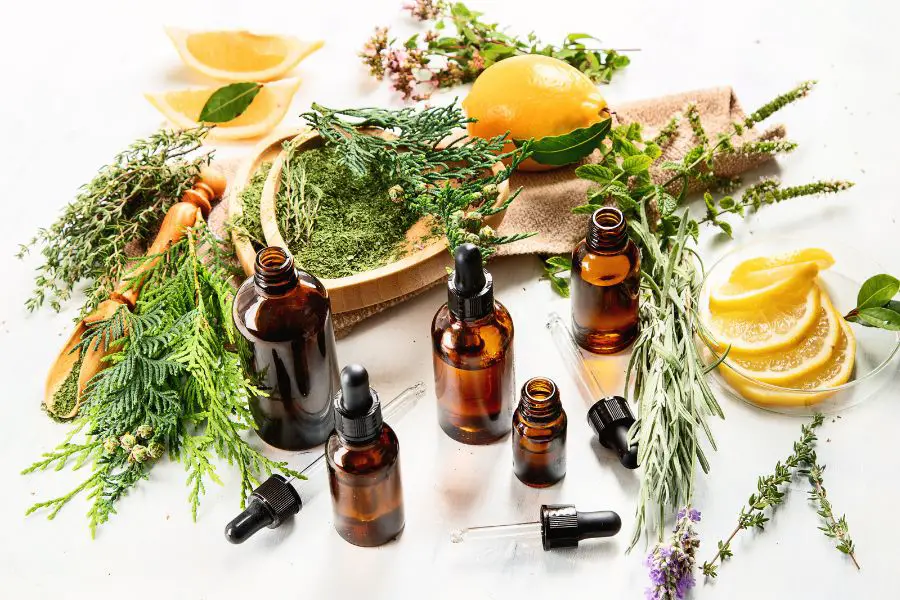
High porosity hair can easily lose moisture since the hair cuticles are raised. To retain moisture, it’s essential to choose the best oils to nourish and strengthen your hair. Here’s a list of the most effective oils for high porosity hair:
- Coconut oil
- Olive oil
- Avocado oil
- Castor oil
- Jojoba oil
- Argan oil
- Grapeseed oil
- Sweet almond oil
- Sunflower oil
- Shea butter
- Babassu oil
- Mongongo oil
- Rosemary oil
- Tea Tree oil
- Peppermint oil
1. Coconut Oil
Coconut oil penetrates deep into your hair shaft, preventing protein loss and promoting healthy hair growth. It also seals in moisture and reduces frizz.
Ingredients: Coconut oil contains saturated fatty acids, primarily lauric acid.
Frequency: Apply coconut oil 1-2 times per week as a pre-wash treatment or mix a few drops into your favorite conditioner.
2. Olive Oil
Olive oil is an excellent moisturizer, coating your hair strands to lock in hydration. It also reduces frizz, prevents breakage, and soothes an itchy scalp.
Ingredients: Olive oil contains monounsaturated fatty acids and antioxidants like vitamin E.
Frequency: Use as a hot oil treatment once a week or mix a small amount into your regular conditioner.
3. Avocado Oil
Avocado oil moisturizes your hair, penetrates the hair shaft, and strengthens it from the inside. Avocado oil adds shine and promotes healthy hair growth.
Ingredients: It contains monounsaturated fats, vitamin E, and other nutrients.
Frequency: Apply to your hair when needed as a sealant or as a deep conditioning treatment every 1-2 weeks.
4. Castor Oil
It strengthens your hair, promotes growth, and reduces breakage. Its antimicrobial properties help maintain a healthy scalp.
Ingredients: Castor oil is high in ricinoleic acid, a monounsaturated fatty acid.
Frequency: Massage a small amount into your scalp 1-2 times per week or add a few drops to your favorite conditioner.
5. Jojoba Oil
Jojoba oil resembles your scalp’s natural oil, making it an excellent moisturizer. It also reduces frizz, split ends and promotes hair elasticity.
Ingredients: Jojoba oil contains monounsaturated fatty acids and vitamin E.
Frequency: Apply a few drops to your hair after washing or mix it into your leave-in conditioner.
6. Argan Oil
Argan oil moisturizes your hair, reduces frizz, and adds shine. Argan oil is also known to protect your hair from heat and environmental damage.
Ingredients: It is rich in vitamin E, antioxidants, and essential fatty acids.
Benefits: Frequency: Use a few drops after washing your hair or as a leave-in treatment.
7. Grapeseed Oil
Grapeseed oil:
- Moisturizes and improves the elasticity of your hair
- Reduces frizz
- Promotes healthy hair growth
Ingredients: Grapeseed oil contains linoleic acid, a polyunsaturated fatty acid, and vitamin E.
Frequency: Apply a small amount to your hair as a sealant or mix a few drops into your preferred conditioner.
8. Sweet Almond Oil
Sweet almond oil moisturizes and softens your hair, reducing frizz and breakage. Additionally, sweet almond oil can soothe an irritated scalp.
Ingredients: Sweet almond oil has monounsaturated fatty acids, vitamin E, and essential nutrients.
Frequency: Use a few drops on damp hair as a leave-in treatment, or add it to your conditioner.
9. Sunflower Oil
Sunflower oil seals in moisture, reduces frizz, and promotes shiny, healthy hair.
Ingredients: Sunflower oil contains essential fatty acids, vitamins, and minerals.
Frequency: Apply a small amount to your hair as needed or mix it into your favorite conditioner.
10. Shea Butter
Even though it is butter, shea butter is used in hair care practices as an oil. It moisturizes the hair shaft, reduces frizz, and adds a protective barrier to lock in moisture.
Ingredients: Shea butter is high in fatty acids and vitamins A, E, and F.
Frequency: Use as a leave-in treatment after washing your hair or mix with other oils for a deep conditioning treatment.
11. Babassu Oil
Babassu oil penetrates your hair shaft, sealing in moisture. Babassu oil also assists in maintaining a healthy scalp and promotes hair growth.
Ingredients: Babassu oil is rich in saturated fatty acids, such as lauric acid and myristic acid.
Frequency: Apply a small amount to your hair or use it as an ingredient in a hair mask.
12. Mongongo Oil
Mangongo oil is great for protecting your hair against UV rays and other environmental damage. It also moisturizes, promotes elasticity, and reduces frizz.
Ingredients: Mongongo oil contains polyunsaturated fatty acids, vitamin E, and other essential nutrients.
Frequency: Use a small amount on damp hair or mix it with other oils for a deep conditioning treatment.
13. Rosemary Oil
Rosemary oil stimulates hair growth, reduces hair loss, and improves scalp health.
Ingredients: Rosemary oil is a natural essential oil that contains:
- Antioxidants
- Vitamins
- Minerals
Frequency: Add a few drops to your favorite carrier oil, like coconut or olive oil, and apply to your scalp 1-2 times per week.
14. Tea Tree Oil
Tea tree oil helps to cleanse your scalp, reduce dandruff, and soothe itchiness.
Ingredients: Tea tree oil is an essential oil that has strong antimicrobial properties.
Frequency: Mix a few drops with a carrier oil, like coconut or jojoba, and massage it into your scalp once a week.
15. Peppermint Oil
Peppermint oil stimulates blood flow to your scalp, promoting healthy hair growth and reducing hair loss.
Ingredients: Peppermint oil is a natural essential oil containing menthol.
Frequency: Mix a few drops with carrier oil and apply to your scalp 1-2 times per week.
How To Use Oils for High-Porosity Hair
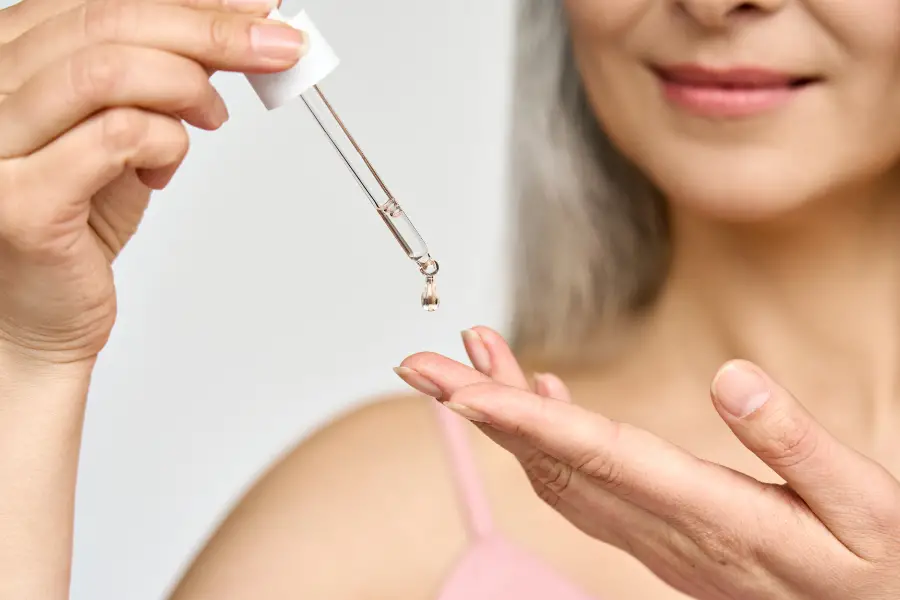
Choose the right oil for your high-porosity hair. Grapeseed oil is a great option as it prevents protein loss.
Wash and condition your hair. Make sure your hair is clean and damp before applying any oil.
Leave-in conditioner to your damp hair. This will provide extra moisture, making it easier for the oil to penetrate your hair shaft.
Pour a small amount of oil onto your fingertips. Rub your hands together to warm the oil and distribute it on your palms.
Massage the oil into your hair, focusing on the ends and avoiding the roots. This will help seal in moisture and protect your high-porosity hair from damage.
Remember to use oils as part of the LCO method: liquid or leave-in conditioner, cream, and oil. This sequence is essential for treating high-porosity hair effectively.
Frequently Asked Questions
Can I mix oils for a more effective treatment for my high-porosity hair?
Yes, you can mix oils to create a more effective treatment for high-porosity hair. Combining oils can provide extra benefits and help nourish your hair more effectively. Always remember to experiment with different oil combinations to find the best mix that suits your hair type.
Should I use oil before or after shampooing my high-porosity hair?
It’s a good idea to apply oil on your high-porosity hair both before and after shampooing. Using oil before shampooing helps to protect your hair from the potential stripping effects of the shampoo. Applying oil after shampooing allows your hair to lock in moisture and nutrients. This combination will help keep your hair healthy, shiny, and well-hydrated.
Can oils help with hair growth?
Oils can help promote hair growth by improving circulation in your scalp. They provide essential nutrients to your hair follicles. Massaging your scalp with natural oils can stimulate blood flow, promote healthy hair growth, and prevent hair loss. Results may differ from person to person, and using oils alone may not guarantee significant hair growth. It’s important to combine oil treatments with a healthy diet and proper hair care routine.

